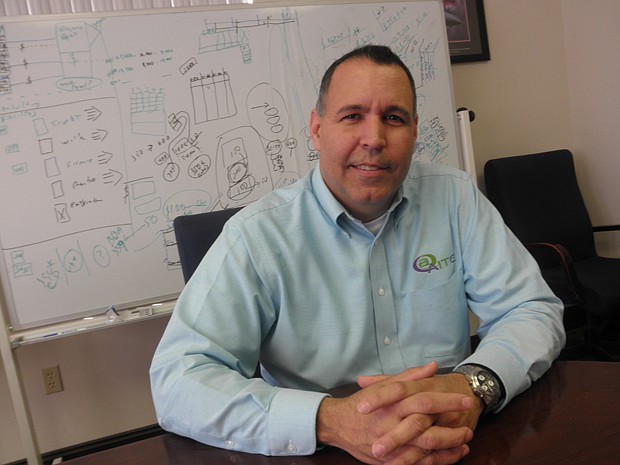- July 26, 2024
-
-
Loading

Loading

The University of Central Florida Business Incubation Program is offering veterans and active military members the chance to learn how to start their own businesses from a successfully proven program.
The University of Central Florida Business Incubation Program (UCFBIP) is the host to the Central Florida pilot program of the Kauffman FastTrac NewVenture Veteran Entrepreneur course. The program has been taught on military bases around the country with 300 participants so far.
The 30 hour class, which is open to both veterans and active military members, costs $100 and will teach business and networking skills, give attendees access to their own military business owner advisory board for advice and support, and will connect them to other military business resources in the area.
“The Incubation Program is designed to create an environment for businesses to be successful and to create jobs,” said Gordon Hogan, director of the UCFBIP. “We just want to give veterans the opportunity to make a good decision.”
The UCF Business Incubation Program will host the $100, 30-hour business start-up workshop for veterans and active military this April. For more information, contact Peggy Allen at [email protected] or 407-882-0888.
Rafael Caamano, assistant director for the UCFBIP, said that the economy and job market is still in a rough state. After retiring, many military members can’t find a job or are underemployed. Their next option is to create their own job by starting a business, which is a popular choice. Veterans own nine percent of business in the United States, and are 45 percent more likely to become an entrepreneur compared to people with no active-duty military experience, according to 2011 research from the U.S. Small Business Administration Office of Advocacy.
Course objectives
The class will first help the veteran decide if their idea is feasible, and if they have the motivation, time and character it takes to start their own business.
And that’s what drew Orlando veteran Christian Betancourt to the program. Because of his healthcare background – he was a combat medic in the Navy and served for 12 years before retiring – he always thought about starting his own daytime care-giving center for adults. But, he’s never been sure if he could actually do it. He hopes to be able to make a more informed decision after the class.
“You’re confident to make the right decisions,” he said. “They didn’t provide any false expectations … that’s what I really want.”
The class will then teach the veterans how to make their business idea happen, from the basic business plan, to finding their audience and the money to actually start it up.
Veteran success
Gabe Ruiz, president of Advanced IT Concepts in Orlando and a retired Army colonel, said his success is proof of the value of the business assistance programs offered by UCF. While his company was too large to participate in the UCFBIP, he did benefit from using the resources at the Small Business Development Center at UCF.
He’s grown his revenue 100 percent to $5 million last year, and tripled in size since utilizing the advice he got from his advisor there. Ruiz plans to be on the advisory board for the UCFBIP’s new veteran program, giving back after all the help he’s received.
“The program brings decades of experiences, expertise and lessons learned that would take entire lifetimes to be learned, that are available to them on day one,” Ruiz said.
Veterans make good entrepreneurs
It’s not always easy to translate military experience into civilian work atmospheres, Ruiz said, but the qualities military members have are extremely useful as a business owner.
“Entrepreneurship is almost automatic,” he said. “It’s an attitude toward serving, it’s an attitude toward perfection.”
Veterans thrive under pressure, are open to taking risks and can adapt quickly. Civilians rarely experience the level of stress on the job active military members have.
“Military members have to face that on a daily basis, they’ve gone to war,” Betancourt said. “There’s really no room for error and there are lives on the line.”
“They understand missions, they understand objectives,” Caamano said. “They have tendency to stay on target.”
But they don’t always realize that those skills are what make a great entrepreneur, so that’s why the UCFBIP veteran course is important to help them identify their strengths and take the next step. Hogan and Caamano hope that they can help a few veterans make the decision to start their own business after taking the class, and then move on to their additional BIP courses. They’re working on garnering more sponsors to help veterans with registration fees once they see how successful this current program is.
Betancourt said he can’t wait to see where this opportunity will take him.
“I don’t aspire to be 55 and waiting for my paycheck,” he said. “I want to set the pace for my family’s future.”